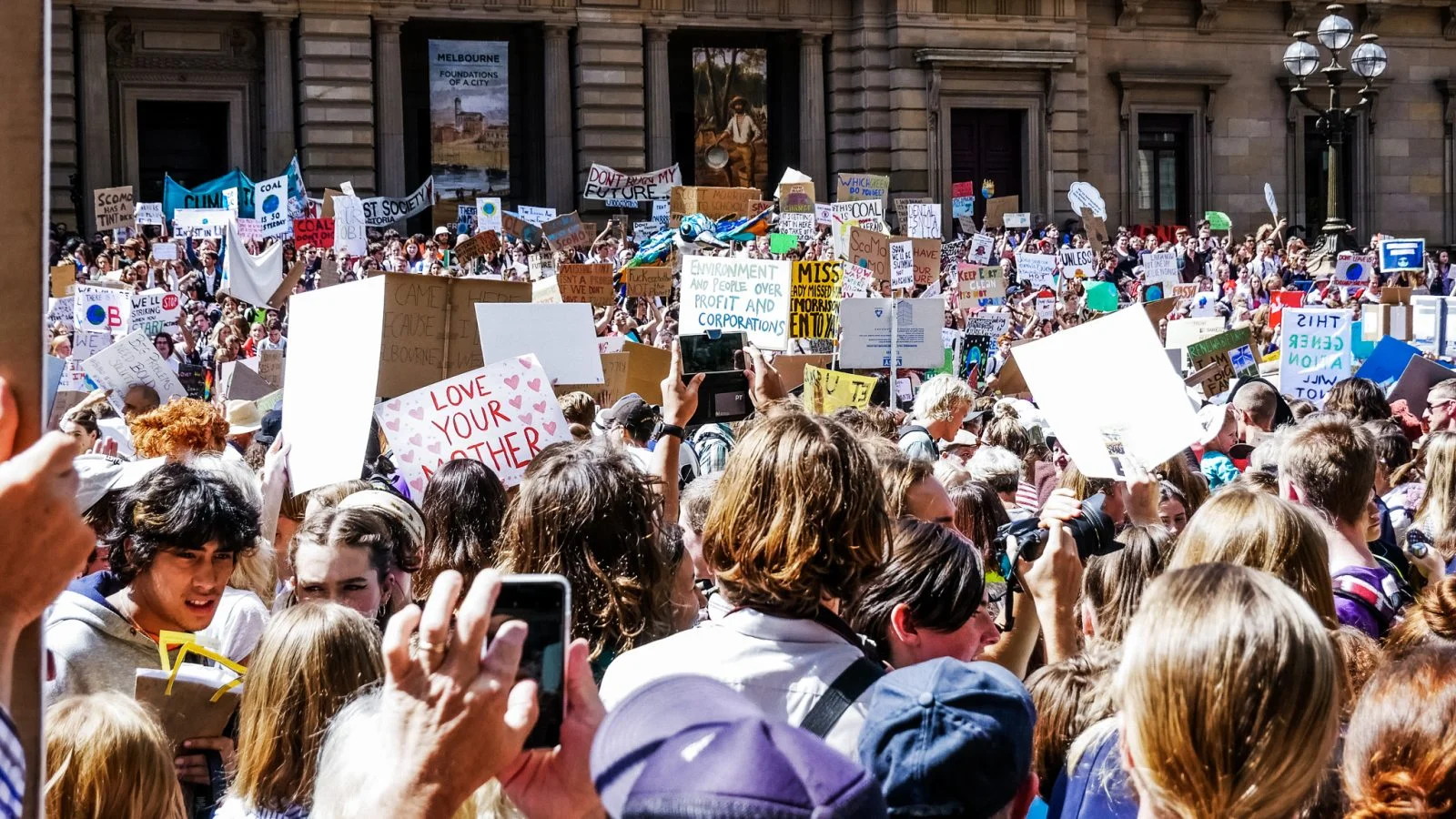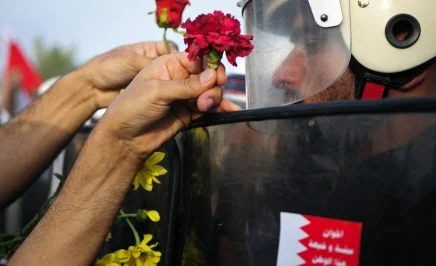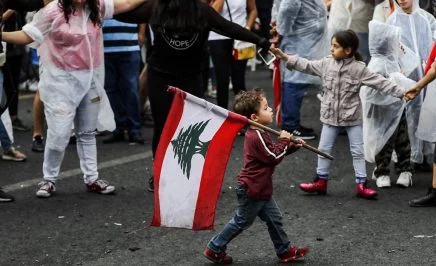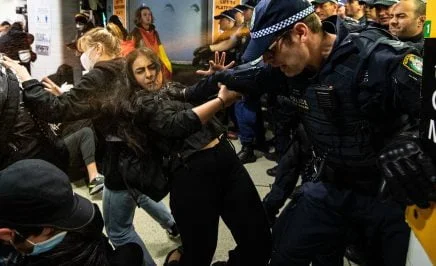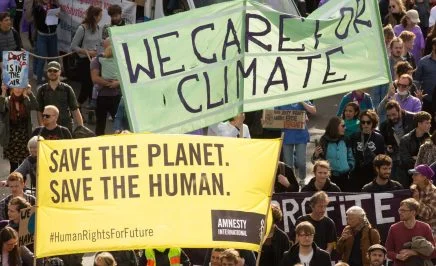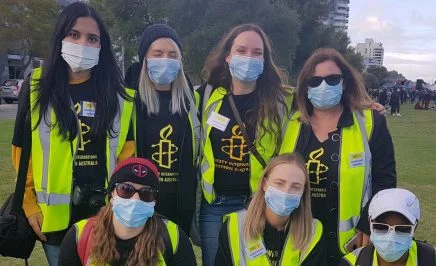Usually taken for granted or not recognised as a right, the right to protest is under threat, leading to injustice and the silencing of crucial voices. This piece will explain what is our right to protest and why it is important.
What is the right to protest?
The right to protest is the makeup of three important rights; the right to freedom of assembly, the right to freedom of association, and the right to freedom of speech. It is a right that everyone is entitled to ensure that all voices are heard and that there is equality, inclusivity and freedoms for all.
Protests come in many different forms like marches, sit-ins, peaceful, boycotts, sit-ins, or strikes from jobs. It is an important way in which people can speak the truth to those in power.
“Every man of humane convictions must decide on the protest that best suits his convictions, but we must all protest.”
Dr Martin Luther King Jr – African American activist who led the 1963 March on Washington for African American rights and jobs
Why do governments want to stop the right to protest?
Leaders and government bodies across the globe are finding new ways to oppress protest and pivotal voices.
A key element of protest is disrupting an everyday activity to gain attention or highlight the injustice that is occurring. This can involve disrupting everyday routines that impact the greater population. By doing so, protesters are making noise, getting those in power’s attention.
However, governments want to avoid this disruption to everyday life because it then reflects on them when things are not running smoothly. By extinguishing individuals’ right to protest they are benefitting themselves and taking control of situations, rather than allowing people to voice their concerns and highlight injustice.
Governments fear the power people can have when banding together.
“Never doubt that a small group of thoughtful, committed citizens can change the world; indeed, it’s the only thing that ever has.”
Margaret Mead
Australian states’ stances on the right to protest
According to the Amnesty International Australia Human Rights Barometer 2021:
- Australians support the right to protest. The overwhelming majority of respondents supported the right to vote (86%), freedom of speech (83%), and the right to protest (68%).
- Many Australians don’t realise that the right to protest is not protected under federal law. 53% of respondents believed freedom of speech is protected by Australian law
While the High Court has ruled the existence of implied freedom of political communication, it is not explicitly protected under the Australian Constitution. The current common law precedents operate as an avenue available to free oneself from government restraint, rather than a right that is directly conferred on the individual.
Many states have introduced anti-protesting legislation:
- NSW – protestors can face up to 2 years of jail and a $22,000 fine if protests are disruptive
- Tasmania – protestors can face up to 21/2 yeah in jail and receive up $11,000 in fines, double that for a second offense
- Victoria – targeting climate protestors can spend 12 months in jail and receive up to a $21, 000 fine
A lot of money to stand up for what is right.
Why is the right to protest important?
As seen through history and present society, it has been the driving force behind many social movements that call out injustice and abuse, demanding change and hope for a better future. It is an issue that tackles the right to be free of discrimination based on age, race, gender identity and other factors. Protest is the most equal opportunity for political action.
The right to protest has made a great impact throughout the world with social movements born from protests including:
- The Black Lives Matter Protest (2020)
- #MeToo movement (2017)
- African American civil rights movement (1950s)
- Indigenous Australian land rights movement (1960s)
- Marriage equality (1990s)
- Women’s rights (1960s)
- Climate action
- And many more
In 2019, governments and schools threatened expulsion for students who attended the climate rally. Students became frustrated that their voices would be suppressed.
“As school students, we’re sick of being ignored. We’re sick of our futures being turned into political footballs. We feel sick when we see the climate impacts that are already devastating communities here and around the world. It’s time for our politicians to stop making decisions about us without us.”
Student striker Harriet O’Shea Carre, 14 years old
The right to protest means that people can fight for a better future for themselves and others that those in power may not be able to see. Without the right to raise our voices in protest, the world would be a very different place.
Amnesty fighting to keep the right to protest
We can’t afford to be silenced now. To create change and equality we need to protect the right to protest to fight injustice.
To ensure the right to protest is protected we will;
- Pressure Australian governments to repeal anti-protest laws so that Australian laws respect the right to protests,
- Advocate for laws that protect peaceful protest – including a federal Human Rights Act,
- Protect people exercising their rights, making sure police behaviour is proportionate and peaceful protest is safe for people to attend,
- Challenge harmful anti-protest rhetoric in the media, and
- Pressure governments around the world to end the growing crackdown on peaceful protests and ensure activists and human rights defenders can continue to safely campaign to make the world a better place.
Help us to ensure that your right to protest is not threatened by those in power, so that change and progress can happen.
Protect the right to protest
In 2022, protesters are once again taking to the streets to call for justice, equality and human rights. This should not be stopped by enforcement, fines, or restrictive legislation.
Although this suppression of human rights is worrying, we won’t give up. All around the world, ordinary people continue to come together to stand up against those in power and make real change happen. It’s up to us to challenge injustice where we see it.
Together we can ensure everyone can safely stand up for what’s right.
Right now, governments in Australia and around the world are cracking down on our right to protest. Too many people in power who fear change and want to keep us divided are suppressing protests and silencing critical voices. Find out more about our Right to Protest campaign.
